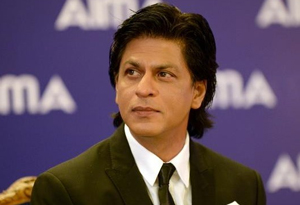
Sydney, Oct 11: India's biggest film star Shah Rukh Khan says the family spirit of Bollywood movies is what makes them so popular while revealing he struggled to combine dance with serious acting.
In a career spanning three decades, Khan has made himself one of the biggest box office draws in Bollywood as the hero of romantic dramas and high-octane action flicks, and he said he quickly learned there are certain ingredients that make a movie successful.
"India's so diverse with 1.2 billion people (and) not extremely rich in some places," he told the Australian Broadcasting Corporation during a just-ended visit to Sydney for the Indian arts festival "Parramasala".
"When people go to watch a film, they like to think of it as an event for the whole family for the whole year -- so the grandmother goes and the great grandson goes.
"So you've got to make a film which includes an interest for everyone -- a little bit of action, a little bit of fights, a little bit of song, a little bit of crying, a little bit of happiness -- and a big climax."
Khan, whose most recent movie "Chennai Express" has smashed box office records in India, said that family spirit had helped Bollywood also appeal to international audiences.
"(Some fans in Germany) said 'Indian films provide us with that button -- you put it on and you feel connected'," he said.
"It kind of takes you back to your roots and culture," he said, adding that "in this fast-paced world ... people want to look back and think of all the good things. Why don't we sing and dance a little more in our families?"
While singing and dancing is a crucial element in any Bollywood film, Khan, whose popularity is such that he now has more than five million Twitter followers, admitted that he initially struggled to integrate this with his serious acting background in English theatre.
"I used to find it awkward to begin with, but then I suddenly realised as an actor that given the right kind of a film, character and motivation, it's perhaps easier than going into an unnatural space and trying to make it look as real as possible," he told the broadcaster.
"The first couple of years I had an issue and perhaps that's why I got accepted because I did it a little differently... because I would try to give some logic to it and I think this fitted for people to think there's a new way of doing it."





Comments
Add new comment